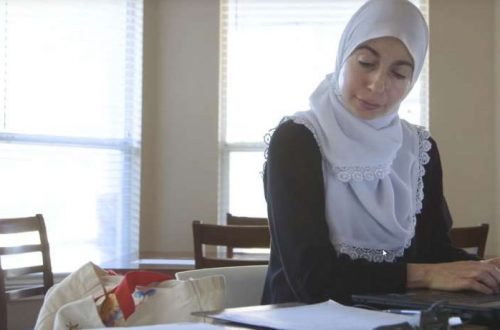In last night’s programme The Satanic Verses: Thirty Years On, Mobeen Azhar reported on the novel’s legacy, and its role as a catalyst in the conflict between radical Islam and the West. Azhar had never read The Satanic Verses before and it was interesting to hear him articulate the discomfort it made him feel. He went on to make it clear that he does not question Rushdie’s right to write or publish the novel.
He began by reminding us of the context to this controversy – the racism and discrimination facing immigrants and the reasonable perception of unfairness in a blasphemy law (now of course thankfully abolished) which only protected one religion – Christianity.
Azhar went on to interview several of those caught in the events of 30 years ago. Some of these seemed disturbingly adamant that they still see nothing wrong in their actions. Chillingly, Mohammad Siddique said he thought the response to the novel had been useful in stopping others write similar books. (By contrast Shahid Butt said he’d no longer resort to violence – but he would call Rushdie a ‘fucking dickhead’.)
Matthew Collins, formerly a NF activist, now with Hope Not Hate, gave an interesting account of his (largely ignorant) views at the time. However it was a little unsettling – though he may simply have phrased the point unfortunately – that he almost seemed to blame Salman Rushdie for writing the novel rather than simply noting that it could be exploited by the far right.
‘Dehumanising is a process. And I think Salman Rushdie may have started it with his book.
Another interviewee was ex-Muslim Sadia Hameed. She robustly, and rightly, argued against the idea of a law to protect religion. However I rather sympathised with Azhar when he explained that he found some of the irreverent swipes at Mohammed/Islam used by the Council of ex-Muslims a little divisive – it strikes me too as a shame not to capitalise on the many crucial things liberal Muslims have in common with ex-Muslims. (Again, I should note that Azhar was unambiguous in supporting her right to insult and make fun of Islam.)
The programme concluded, dispiritingly but not very surprisingly, with Azhar attempting to do a vox pop in Bradford only to have the novel snatched away from him and burnt to the clear approval of at least some of the passers by.
Azhar was obviously very frustrated by that response – but in some ways Sean O’Grady’s review of the programme in the Independent was still more shocking. Like the programme itself it came with a sting in the tale. He concluded:
Rushdie’s silly, childish book should be banned under today’s anti-hate legislation. It’s no better than racist graffiti on a bus stop. I wouldn’t have it in my house, out of respect to Muslim people and contempt for Rushdie, and because it sounds quite boring. I’d be quite inclined to burn it, in fact. It’s a free country, after all.
The flippancy as well as the sheer illiberalism of this comment is quite breathtaking.





